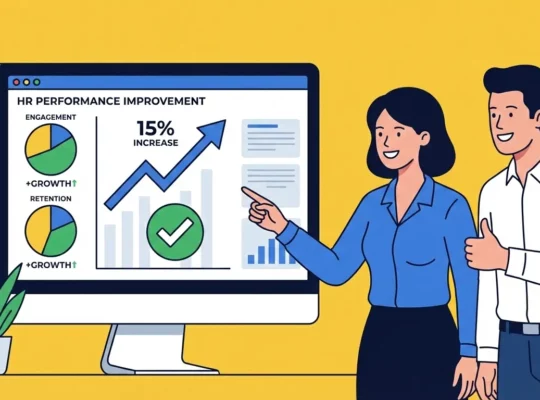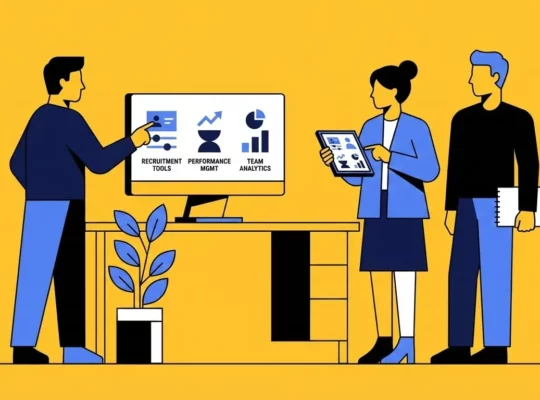The recent study by Review.Jobs provides an insightful look into the role of senior employees in France’s labor market, based on feedback from 1,058 workers. It explores the perceptions of professionals aged 55 and older, considering the views from different generations and organizational levels. This research uncovers the nuanced dynamics of age within French professional settings, highlighting the skills, challenges, and unique contributions of older employees.
Table of Contents
I. Favorable Views on Senior Employees
The Review.Jobs survey paints a broadly positive picture of senior workers within the French job scene. Most employees acknowledge the expertise and thoroughness of those over 55, with 76% affirming their competence and 69% applauding their diligence. Appreciation is particularly high among younger workers and high-ranking executives, suggesting a widespread intergenerational respect that challenges common stereotypes about age gaps in the workplace.
1. Expertise and Professional Conduct
The data speaks volumes: seniors are respected not just for their accrued experience but for their careful, methodical approach to tasks. This respect is even more prominent among the younger cohorts, refuting myths of a generational divide. Moreover, 79% of senior executives recognize the high competence of older colleagues, surpassing the seniors’ own self-assessment of 74%, indicating a strong acknowledgment of their valuable skills free from ageist biases.
2. Technological Adaptability
Dispelling common misconceptions, the study shows that seniors are more technologically savvy than many younger and executive employees assume. While 40% of all surveyed employees and 48% of executives think seniors struggle with new technologies, only 37% of seniors themselves report such challenges. Additionally, 18% of seniors feel comfortable with recent shifts towards remote work and collaborative projects, compared to 31% of the younger demographic who underestimate their older colleagues’ adaptability.
II. Challenges Facing Senior Employees
The findings highlight significant obstacles related to employing seniors, particularly the complexities involved with age perceptions and workplace integration.
1. Age Bias and Discrimination
Despite their recognized abilities and adaptability, seniors encounter notable hurdles, especially in fitting seamlessly into corporate cultures or specific job roles. About 30% of younger workers and 38% of executives hesitate over the seniors’ capability to assimilate effectively, showcasing prevalent age-related discrimination. This includes unfounded stereotypes about decreased speed or adaptability to new working methods, which spotlight the discrimination seniors face and the critical need for their skills in a rapidly evolving economic landscape.
2. Executive-Level Paradox
An intriguing aspect of the research is the critical views held by senior executives—often seniors themselves—towards their age peers. A significant number of these leaders perceive older employees as more likely to be weary or ill and doubt their ability to grasp younger employees’ expectations. This harsher scrutiny reflects a complex intergenerational challenge within leadership roles, questioning how seniority influences perceptions within the corporate hierarchy.
III. Promoting Better Integration of Seniors
The study not only documents challenges but also outlines strategies for enhancing the workplace integration of seniors, which is vital for harnessing the full potential of age diversity.
1. Recognizing the Value Seniors Bring
- A majority of respondents (59%) value the positive impact of seniors, especially their role in mentoring and knowledge transfer, which are crucial for fostering workplace learning and innovation. Seniors’ ability to provide perspective and maturity is seen as an asset that enhances team effectiveness and drives innovative solutions.
2. Proposed Initiatives for Organizations
To benefit from this generational diversity, companies are encouraged to:
- Implement reverse mentoring programs to enhance mutual understanding between different age groups and improve internal communication in companies.
- Offer continuous professional development that includes up-to-date technology training for seniors.
- Promote generational diversity in project teams to integrate varying perspectives and skills.
- Adjust hiring practices to avoid age biases and value experience as highly as fresh talent.
- Create flexible working environments that cater to the diverse needs of all age groups.
Review.Jobs’ comprehensive analysis not only illuminates the significant contributions and capabilities of senior workers but also emphasizes the importance of progressive workplace policies that support a dynamic and inclusive economic future where every generation is valued and can thrive.
FAQs
What are the main perceptions of senior employees in the workplace?
Senior employees are highly regarded for their expertise, thoroughness, and professional conduct. The study found that 76% of respondents affirm their competence, and 69% appreciate their diligence, showcasing widespread respect for older workers across generations.
How adaptable are senior employees to new technologies and modern work methods?
Contrary to common stereotypes, many seniors demonstrate strong technological adaptability. Only 37% of seniors report difficulties with new technologies, despite 40% of employees and 48% of executives assuming otherwise. Additionally, 18% of seniors are comfortable with shifts like remote work and collaborative projects.
What challenges do senior employees face in the workplace?
Key challenges include:
- Age Bias and Discrimination: Seniors face stereotypes about their speed, adaptability, and ability to integrate into corporate culture.
- Executive-Level Paradox: Some senior executives express critical views toward their age peers, questioning their vitality and ability to connect with younger employees’ expectations.





